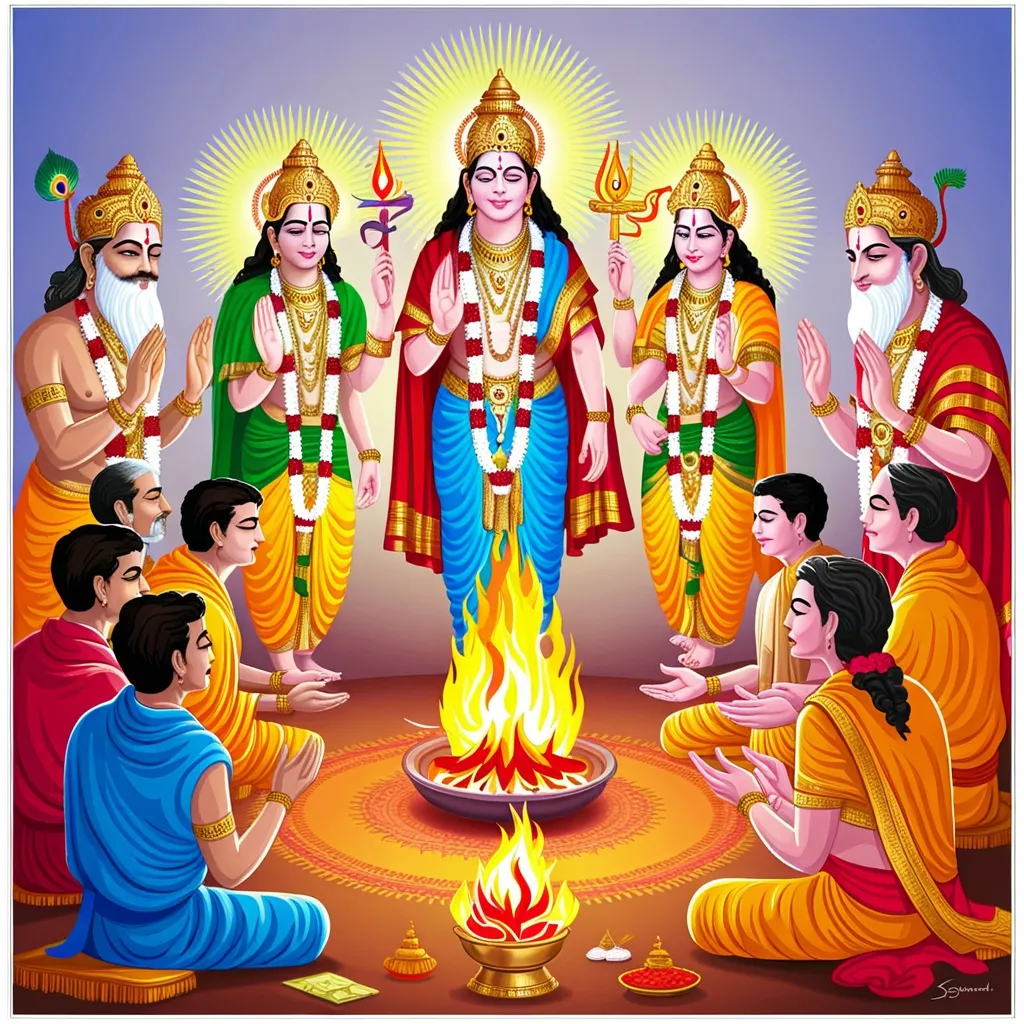If you’ve ever paused to truly consider what happens when you drift into sleep, you’ll realize how much of life’s tapestry is woven in those unseen, silent hours. The Vedas—the oldest spiritual texts of India—invite us to ask: What do our dreams mean? What is happening to the self during deep sleep? Is this just biological downtime, or something with greater potential?
I find that most of us barely scratch the surface of how sleep and dreams influence not only our sense of well-being but our understanding of self and purpose. The Vedic tradition treats sleep and dreaming not as mindless voids or mere biological processes, but as gateways—to knowledge, healing, and even deeper awareness.
Let’s consider the idea that sleep is not just rest but a fundamental state of consciousness. The Mandukya Upanishad lays out four states: waking, dreaming, deep sleep, and a fourth, transcendent state. While waking is dominated by the senses, dreaming is the playground of impressions—old memories, wishes, fears, and unresolved emotions bubble up. Deep sleep, on the other hand, is described as formless, contentless, unbroken peace, where individual identity is dissolved, and pure consciousness alone remains.
What is happening in dreams? Vedic psychology sees them as more than rambling nonsense. They’re an active process where the mind digests the impressions—known as samskaras—from daily life. The most vivid dreams often reveal what we haven’t faced while awake. Have you ever noticed that some dreams stick with you for days, carrying emotional residue or new perspective? The tradition teaches that these are signposts from the subconscious, calling you to integrate what’s unresolved.
“Dreams are the guiding words of the soul.”
—Carl Jung
If all dreams are not equal, how do you make sense of them? Vedic thinkers documented methods to classify dreams by their source and function. Some dreams are physical—reflecting your bodily condition. Others are psychological, depicting fears or desires. A rare few, they say, carry spiritual messages or premonitions, particularly when the mind is calm and sattvic. This makes me wonder—how often do we miss crucial communications from the deeper self because we dismiss dreams as trivial?
Lucid dreaming—a state where you are aware within the dream—was not a recent discovery but a subject of Upanishadic curiosity millennia ago. These texts suggest that by stabilizing attention before sleep, or by repeating a mantra as you drift off, you can bring awareness into the dream. In this space, you see the dream as a mental projection, not external reality. Imagine realizing while dreaming that you are dreaming—this shift can be life-changing. It’s a laboratory for self-exploration, for facing fears, and even for creative breakthroughs. Have you tried setting an intention before sleep and noticed a shift in your dream experience?
“Sleep that knits up the ravelled sleave of care.”
—William Shakespeare
If dreaming is a stage for processing and integration, deep sleep is something even more radical. The Mandukya Upanishad calls this state suṣupti—a vast emptiness, where all impressions and memories are absent, and yet consciousness is present, silent, and self-luminous. It is here, the sages say, that we touch the base of pure being. On waking, there’s an aftertaste of restfulness and renewal that can’t be explained by mere physical rest. They argue that this is the “home” to which consciousness returns every night, whether we know it or not.
Have you ever wondered why, after a night of dreamless deep sleep, you can wake up with a sense of profound peace—unconnected to your life’s ordinary dramas? This experience, subtle and fleeting, is pointed to as a clue: there is an aspect of self not defined by thought, emotion, or even personal narrative. The Vedas call this the ātman, the unchanging witness, glimpsed most easily when the mind is utterly still.
How do you practically prepare for this nightly journey? The Vedic tradition is rich with evening rituals for winding down the mind and preparing for restorative sleep. One practice involves reciting a short mantra or offering gratitude before bedtime, intending to release the day’s burdens. Others recommend gentle breathwork or reflection on the events of the day—not in a critical way, but simply acknowledging and letting go. I’ve found that designating the last moments before sleep as sacred—whether through a simple prayer, journaling, or silence—impacts not just how I sleep, but how I feel on waking.
“In dreams begins responsibility.”
—W.B. Yeats
Dream interpretation can become a practice of self-inquiry rather than superstition. The Vedic texts warn against reading meaning into every dream, but encourage us to notice patterns. Recurrent motifs—traveling, flying, losing or finding objects—might represent psychological shifts or alert us to areas needing attention. For those on a spiritual path, dreams of light, teachers, or sacred symbols are considered auspicious, marking inner progress. I often ask myself: What is this dream reflecting to me about my patterns? Is there something I am not seeing in waking life?
What about improving sleep quality itself? The ancients paid close attention to the environment. They stressed sleeping in a clean, uncluttered space, ideally quiet and gently darkened. These recommendations, echoed today by sleep researchers, have their roots in the idea that external order supports internal calm. Regularity—going to bed and waking at similar times—was seen not as discipline for its own sake, but as a way to support deeper states of rest and awareness.
The Upanishads also record subtler techniques—like visualizing a flame at the heart, or reciting a syllable such as “Om”—that work to anchor the mind as you fall asleep. Setting an intention, such as, “Tonight, I rest deeply and receive what I need,” can shift the quality of both sleep and dreaming. Such techniques help transform sleep from something passive into a conscious practice for healing and renewal.
“All men whilst they are awake are in one common world: but each of them, when he is asleep, is in a world of his own.”
—Plutarch
You might ask: What does this mean for the modern person, busy and exhausted, just looking to get a good night’s sleep? The Vedic framework suggests that every night is a retreat—a chance to reset, process, and connect to something greater than ordinary identity. When sleep is disturbed, it’s often a message from the mind-body complex calling for balance, rather than simply a malfunction to be fixed.
What if you treated your nightly rest as an opportunity, not a chore? Imagine approaching sleep with curiosity and reverence, tracking dreams not just for entertainment but as feedback and guidance. Over time, you may notice that your dreams shift as you do; that certain patterns resolve when you take action in waking life; or that moments of deep, contentless awareness bring a wellspring of creativity and calm.
In essence, the Vedic teachings remind us that sleep and dreams are not trivial—they are portals to deeper layers of being. We re-enter them, night after night, carrying the day’s stories, and return with subtle gifts: insight, clarity, sometimes peace. What we do with those gifts determines how we show up in the world each morning.
“The interpretation of dreams is the royal road to a knowledge of the unconscious activities of the mind.”
—Sigmund Freud
By making simple shifts—setting intentions, maintaining routines, creating sacred spaces—we can begin to explore sleep as the Vedas intended: a journey inward, toward healing, wisdom, and self-knowledge. The next time you lie down, consider: What might I discover tonight? Is there a truth waiting in the silence behind every dream, every breath, every gentle descent into the world behind closed eyes?






